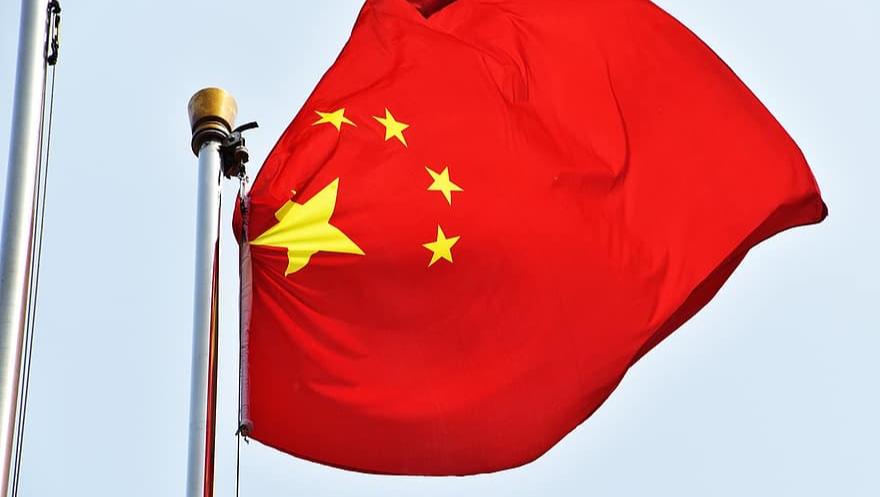
How Riot Games and Tencent bend to the Chinese government’s will
Riot Games has for years been a frequent source of controversy, but even in its best moments there’s a cloud hanging over the famed developer and publisher. This comes from the company being a wholly owned subsidiary of Tencent Holdings Ltd., a conglomerate with close ties to the repressive Chinese government.
Despite Tencent being the largest video game company in the world, many remain largely in the dark about the company’s history, how it operates, and the nature of its relationship with Chinese president Xi Jingping.
What exactly is Tencent’s relationship with the Chinese government? How does this impact Riot Games and the esports scenes it has built around such titles as League of Legends? And what effect could this have on fans of these games?
WIN.gg spoke with Freedom House senior research analyst and China Media Bulletin director Sarah Cook on the matter to find some answers.
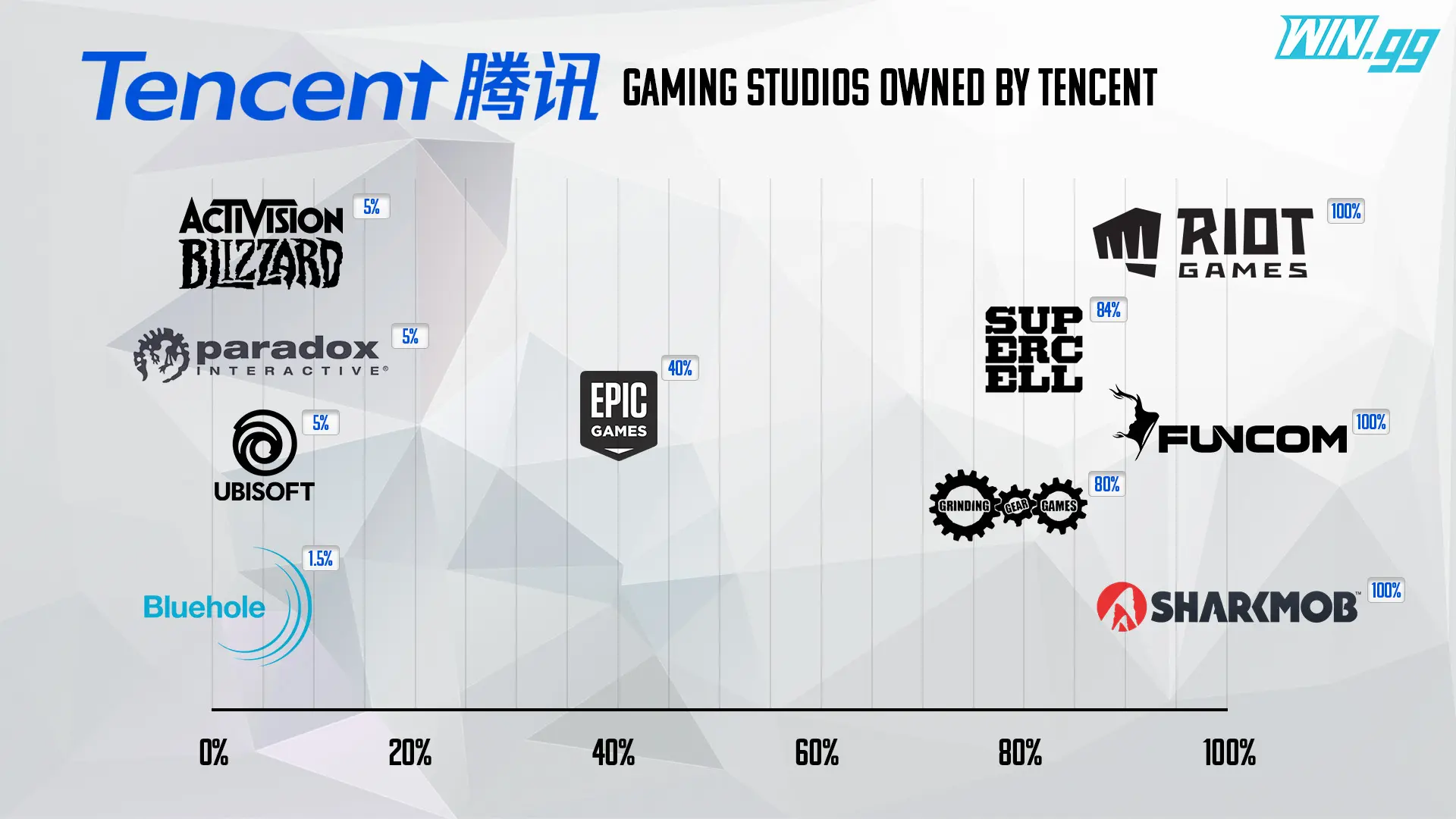
How Tencent works on behalf of China’s government
Tencent Holdings isn’t a company that most gamers in the west have dealt with directly, but many have given the conglomerate at least a few dollars at some point.
Tencent rose to prominence in the gaming industry by licensing games in China, which was followed by Tencent acquiring large stakes in a slew of international publishers. Alongside this, Tencent also owns the world’s largest standalone mobile app, WeChat. A social media app that serves as a mix of Facebook and Apple Pay, it has become a juggernaut in its own right with more than one billion active users around the globe.
The size and popularity of WeChat puts Tencent on the vanguard of the Chinese government’s censorship and surveillance efforts.
“Within China, just like any other Chinese technology company, Tencent is required and actually works very hard to enforce the surveillance and censorship apparatus that the Chinese government’s Communist Party impose on information, and that’s very wide-ranging,” analyst Sarah Cook said.
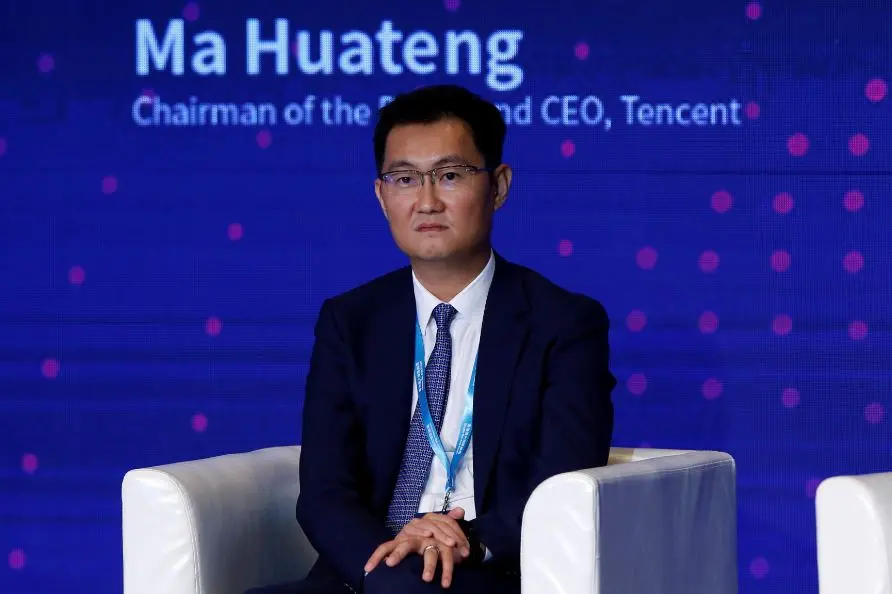
Tencent isn’t alone in this regard. Many prominent tech companies based in China work directly with the Chinese government and, per Axios, are forced to have a representative of the Chinese Communist Party on their boards.
Companies in China need to ensure they don’t run afoul of the government, but not all are as willing to serve as Tencent seems to be.
Though TikTok has recently been in the crosshairs of the United States government and president Donald Trump, the social media app hasn’t been regularly removing anti-China content. By comparison, Tencent’s WeChat is censoring its users and then going a step further than that. It is all but certain that Tencent actively assists the Chinese government in identifying and prosecuting WeChat users who step out of line with their posts and messages, even through private messaging.
“There are people who have disappeared, been tortured in prison for years because of information they wrote on WeChat. And in a lot of cases, it would be hard to imagine how the Chinese government would have gotten access to that without some kind of collaboration from someone at Tencent,” Cook said.
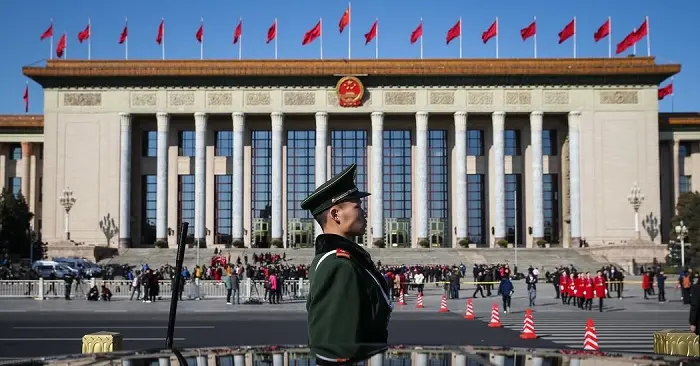
This amiability towards the Chinese government has played a key role in the rise of both Tencent as a company and of the individuals at the company’s head. Helming Tencent’s efforts to stay in the good graces of China’s ruling party is company founder and CEO Ma Huateng, also known by the nickname, “Pony Ma.” Ma has been one of Beijing’s most obedient tech moguls, praising Chinese censorship efforts during public speaking engagements at home and abroad.
Ma has been rewarded many times over for that obedience. In addition to nearly having a monopoly in China, Ma also serves as a member of the National People’s Congress, which has approved of many of China’s most egregious human rights abuses including the brutal crackdowns seen in Hong Kong in recent months as China has sought to quell pro-democratic protests.
“There was a decision of the full National People’s Congress with regards to drafting legislation for national security in Hong Kong. Pony Ma voted for that. There is actually a formal tie to the Chinese government system that has nothing to do with technology that he’s ostensibly involved in,” Cook said.
China’s censorship efforts spread abroad
Users outside of China haven’t had to worry about facing persecution for their direct messages on WeChat, but the western world has gotten a taste of Tencent’s willingness to flex its muscles on Beijing’s behalf.
While League of Legends fans were busy following the 2019 World Championship, a massive controversy hit Hearthstone esports when Ng “Blitzchung” Wai Chung voiced his support for protesters in Hong Kong during an official tournament. Hearthstone publisher Activision Blizzard issued steep sanctions on the player immediately after, a move that was met with harsh backlash from fans around the globe.
The incident likely raised flags at Riot Games, and the publisher preempted any similar trouble by warning broadcasters and players to stay away from any “sensitive topics” during 2019’s League of Legends World Championship. This included the Hong Kong protests.
Though the situation regarding Hong Kong protests was labeled as “nuanced” by Riot in the company’s ensuing explanation, time has shown that the issue was actually very plain. China passed the Hong Kong Security Law in June that functionally ended the territory’s autonomy in violation of previously established laws, giving Chinese authorities the ability to round up anyone that had previously spoken out against the country’s ruling party. China has already begun actioning on this, arresting high-profile activists including Agnes Chow and Jimmy Lai, among others. Riot deflecting conversation by calling the issue “nuanced” has only looked more questionable over time.
A message from John Needham, Global Head of League of Legends Esports pic.twitter.com/5Au9rE7T86
— LoL Esports (@lolesports) October 11, 2019
Riot unquestionably played a role in censoring discussion on the matter. But by moving to silence discussion before it even began, they were able to avoid most of the negative attention that was directed at Activision Blizzard.
“You have entities that will, on their own, proactively take steps that effectively spread the censorship and speech controls that the Communist Party imposes inside China…sometimes it will be because of specific pressure, but a lot of times it’s preemptive out of concern that allowing this type of speech to circulate publicly will result in economic reprisals,” Cook said.
Worries over upsetting China have created a culture of fear surrounding topics both divisive and seemingly innocuous. The NBA endured a major controversy when a Houston Rockets executive voiced support for Hong Kong protests, but McDonald’s and Mercedes-Benz ended up in the crosshairs for what many abroad might consider minor offenses, such as quoting the Dalai Lama or acknowledging Taiwanese as a nationality.

In each case, it led to the companies essentially begging for forgiveness from China.
It’s uncertain whether Riot’s muzzling of players and staff during the 2019 World Championship came directly at the behest of Tencent, but the company was ultimately cowed by the Chinese government’s will regardless of who made the final decision.
What’s more, there’s no mystery regarding whether Riot is willing to directly compromise its integrity at the request of the Chinese government. We’ve seen proof that it is.
In 2019, the Los Angeles Times issued a lengthy report on Riot Games developing software for the Chinese government. The so-called “anti-addiction system” recorded Chinese League of Legends players’ personal information and playing habits for the government in order to regulate the amount of time people could spend in the game.
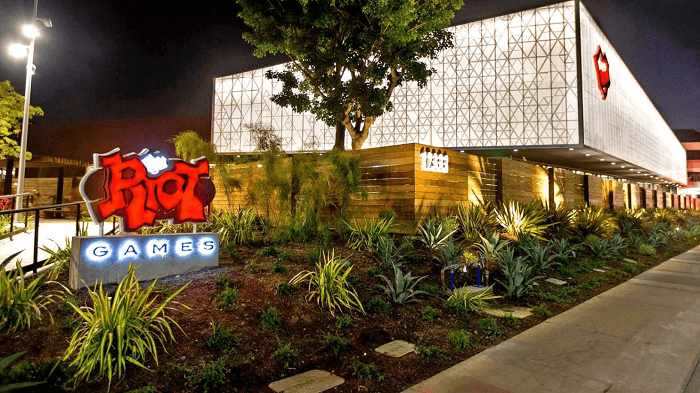
This was a blatant invasion of the privacy of customers in China. Despite that, when faced with the choice between an ethical stand and the demands of the Chinese government’s strict monitoring, Riot seems to have simply done as it was told.
“For American companies, it really comes down to deciding whether or not you are willing to participate in this type of surveillance. If they do choose to take part, it makes these companies not unwitting, but full-blown accomplices in the Chinese police state,” executive director of the Digital Privacy Alliance Matt Erickson said to the LA Times.
Riot Games did not respond to requests for comment on this report.
What can fans do about Tencent and Riot Games?
League of Legends is one of the most popular video games in the world. It boasts millions of active players, as well as the largest and most influential esports scene in the industry. The game is almost impossible to ignore, so what can actually be done to push back against Tencent?
The answer is to just keep talking about it.
“Public pressure can really push companies. I think Chinese companies are responding to pressure from China, but part of what’s emboldened the Chinese government is that there has been relatively limited pushback on this,” Cook said.
Pro players and broadcast talent can’t necessarily be as forward with these concerns out of fear of reprisal from Riot Games. But that doesn’t mean there aren’t still things they can do.
— Riot Games (@riotgames) May 31, 2020
“I think looking for ways to work within the system, especially if it’s collaborative on a large scale. Do something that expresses support for the rights of people in China, Hong Kong, Xinjiang, and Tibet in a way that, at least on paper, complies with the rules,” Cook said.
Riot Games’ own charitable efforts provide the framework for how those within the professional League of Legends scene can show their solidarity with such groups as Hong Kong’s protesters and the Uyghur Muslim minority.
Earlier this year, Riot expressed its official support for the Black Lives Matter movement with a lengthy statement, made sizable charitable donations to groups that were battling police brutality and wrongful convictions, and encouraged its followers to do the same.
Making similar donations to human rights advocacy groups or legitimate charities focused on mistreated groups in China, and encouraging others to do the same through social media outlets, is a great potential way to undermine attempts to control discussion on these and other important topics.
It would be difficult for Riot Games to take issue with such a plea given the company’s official support of other charitable movements. And precedent suggests that the threat of another PR disaster would likely be enough to keep Riot from taking any harsh actions.
Reminder of what your #LEC crew actually stands for. pic.twitter.com/QJzgQuD4fp
— Foxdrop (@Foxdroplol) July 29, 2020
Earlier this year, a controversy was kicked up over Riot’s franchised esports league in Europe, the LEC, entering into a partnership with the Saudi Arabian government. Backlash was swift as on-camera talent and some team owners questioned why the league was entering into a partnership with a nefarious regime while also supporting causes that the regime had specifically cracked down on, such as LGBT rights.
The partnership was dropped in fewer than 24 hours.
This showed that even if fans can’t force a group like Tencent to change its nature, they can still force Riot Games to remain accountable.
Recommended
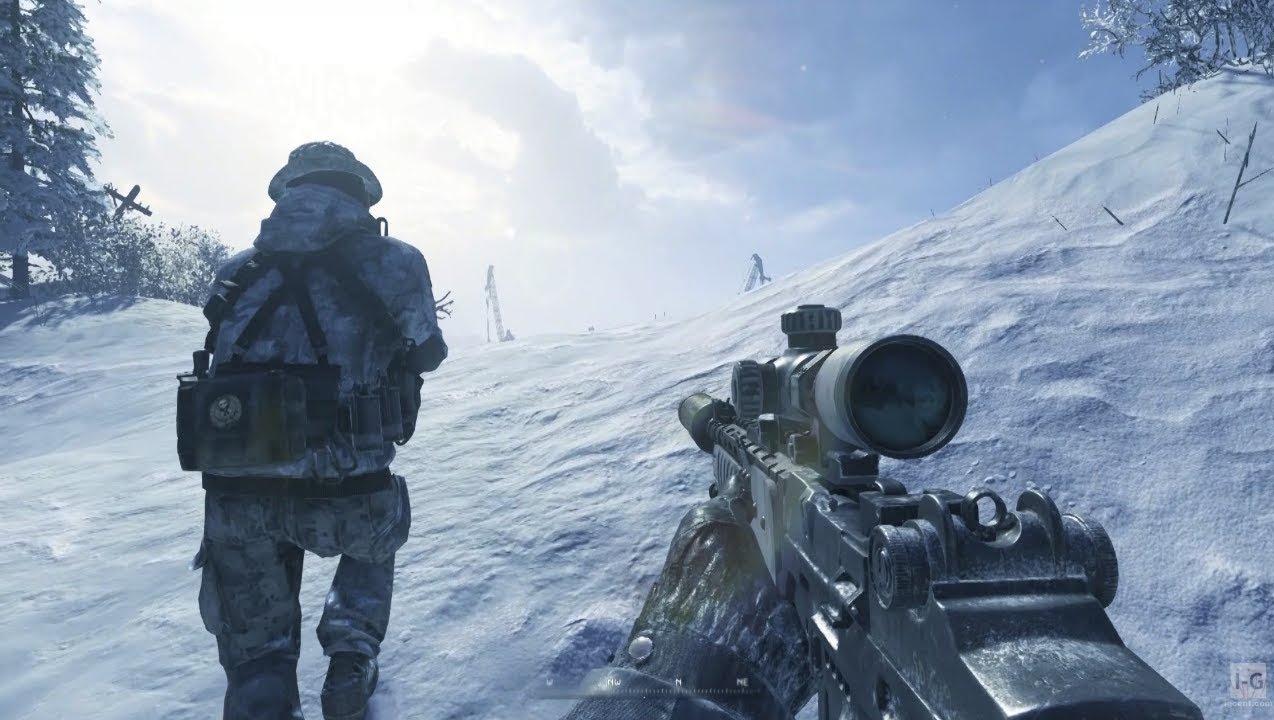
Can a VPN really lower your game ping? Myths vs. reality
Do you really need it?

MrBeast takes action on Ava controversy, responds to allegations
MrBeast has launched a private probe.








